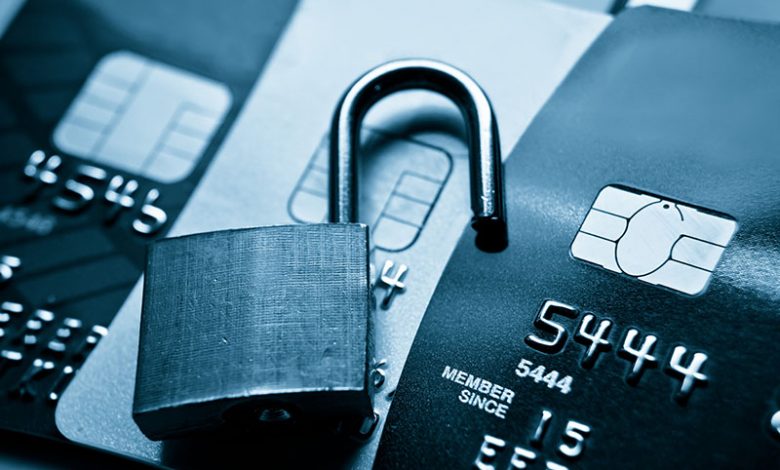
Data breaches in the financial sector, particularly within banks and mortgage companies, have emerged as a critical concern in the modern digital landscape. The convergence of sensitive customer data, intricate financial transactions, and technological advancements has created a ripe environment for cybercriminals to exploit vulnerabilities. These breaches entail unauthorized access, theft, or exposure of highly confidential information, including personal identification data, financial records, and transaction histories. As custodians of individuals' wealth and economic well-being, banks and mortgage companies play a pivotal role in safeguarding their customers' sensitive data. However, the increasing sophistication of cyberattacks and the evolving threat landscape pose significant challenges to maintaining the security and integrity of these institutions. This exploration delves into the intricacies of data breaches within banks and mortgage companies, analyzing the causes, consequences, preventive measures, and broader implications for the institutions and their clientele.
Table of Contents
Notable Occurrences
In 2019, the first of these leaks revolved around the data company, Ascension, suffering a system breach. Prominent clients associated with Ascension, like Wells Fargo, Citigroup, and HSBC, were compromised, with 24 million records exposed for over two weeks. The leaked information included mortgage agreements, tax documents, and repayment schedules.
Shortly after the Ascension data breach, a massive trove of documents (23,000 pages in length) leaked from an ill-protected Amazon server. This unprotected data was a potential treasure trove for fraudsters, containing sensitive information such as social security numbers, bank account numbers and balances, home addresses, tax forms, and income/asset data.
In a more recent 2020 incident, Citywide Home Loans, a mortgage company that operates in 25 states, ended up settling in a $1.2 million data breach lawsuit. The company was accused of neglect, leading to a breach. The leaked data included personal and confidential details- names, addresses, phone numbers, dates of birth, social security numbers, passport numbers, driver's license numbers, credit card information, bank account information, and medical/insurance information. Although Citywide Home Loans denied any liability, they settled the case to conclude the claims.
In 2021, another well-known residential mortgage company, Nations Reliable Lending (NRL), fell victim to a data breach. Over 3 million records ended up on a non-password-protected database. Although the loan and mortgage data remained encrypted, the hackers at play exposed a vast amount of internal and administrative data to gain access to more critical data.
Potential Implications from Leaked Data
Leaked loan and mortgage data from such breaches can present serious complications. From identity theft to the unwarranted use of indirectly related data, it makes for an alarming situation for the victims involved. Data breaches can lead to direct financial losses for both institutions and customers. Cybercriminals may gain access to sensitive financial information, leading to unauthorized transactions, fund transfers, and fraudulent activities. Customers might suffer monetary losses due to unauthorized transactions or identity theft. Stolen personal data can be used for identity theft, where cybercriminals impersonate customers to access their accounts, open credit lines, or apply for loans. That can result in long-term financial damage and affect credit scores.
Data breaches can also damage the reputation, cause loss of trust, legal actions, and regulatory fines. Banks and mortgage companies are subject to strict data protection regulations and may face penalties for failing to protect customer data adequately.
Use of The Data in Identity Theft
The compromised data in these breaches constitutes a severe risk to identity theft. Cybercriminals can leverage exposed details like social security numbers, dates of birth, and passport numbers to construct a convincing fake identity. Fraudsters can then open bank accounts, apply for loans or even file false tax returns under these stolen identities. The victims of such identity theft can face significant financial losses and a strenuous rectification process. Moreover, if attackers use the stolen data to open credit accounts, take out loans, or engage in other economic activities, the victim's credit score can be severely impacted. That can make it challenging to secure future loans, mortgages, or favorable interest rates.
Use of Unrelated Data to Access Sensitive Mortgage and Loan Information
Although loan and mortgage data may remain encrypted or untouched in a data breach, other exposed data can lead to this sensitive information. Cybercriminals can use internal and administrative data, like those revealed in the Nations Reliable Lending leak, to circumvent security measures and gain access to loan and mortgage data. Thus, even 'non-sensitive' data can be a dangerous breadcrumb trail for persistent attackers.
Warning Signs for Identity Theft
Data breaches put individuals at risk of identity theft. While banking institutions often take measures to alert customers of data leaks, recognizing the warning signs of identity theft can help prevent further damage. Here are some signs to look out for.
Unauthorized Filing of Tax Return Under Your Name
If a tax return has been filed under your name without your authorization, this can be a clear indication of identity theft. Fraudsters may use your information to file taxes and claim a refund in your name.
Receipt of Mail Under Different Names
If you start receiving mail addressed to different names at your home, this may indicate that your identity is being fraudulently used. It could also mean that an identity thief has redirected your mail to another address, possibly to access account information or to open accounts under your name.
Contact from Debt Collectors Regarding Unknown Accounts
Being contacted by debt collectors about accounts you do not recognize is a warning sign. Fraudsters may have opened accounts under your name and left unpaid balances, causing debt collectors to come after you.
Leaked Personal Data in a Data Breach
If it is confirmed that your personal information, such as your Social Security number, has been exposed in a data breach, this is a warning sign of potential identity theft. Criminals could be using your stolen details to commit fraud.
Bills for Medical Services You Never Used
Receiving bills for medical services you have yet to avail of is a red flag. Identity thieves may use your insurance to seek medical treatment, leaving you with the account.
New Accounts in Your Name That You Didn't Open
When checking your credit reports, finding unfamiliar new accounts in your name is an alarming sign. Keep a regular check on your credit reports for any suspicious activity.
Alerts from the IRS About Fraudulent Use of Your Social Security Card
Suppose you receive a communication from the IRS informing you about fraudulent usage of your Social Security card. In that case, it signifies that someone might be using your Social Security number for job-related fraud or to fraudulently file tax returns.
Steps to Mitigate Risk
Even though data breaches are a common feature of our digital landscape, affected individuals can take several steps to mitigate the risk of becoming a victim of identity theft. Individuals can significantly reduce their susceptibility to fraudulent activities by remaining vigilant and proactive.
Keeping Track of Bills and Bank Statements
Accurate records of your financial transactions are an essential part of detecting fraudulent activities. Reviewing your bank statements and bills will help identify unrecognized transactions, inquiries, or account changes. That is an integral step to determine if your data has been manipulated following a data breach.
Regular Review of Credit Reports
Regularly reviewing your credit reports can help identify any unfamiliar or fraudulent activity. If unrecognized accounts or changes have been made, it may indicate that your identity has been compromised. Moreover, monitoring your credit or signing up for an identity theft monitoring service can notify you of important changes to your credit file and provide a first line of defense against fraud.
Use of Reliable Cybersecurity Protection
Adopting reliable cybersecurity protections, like antivirus software and firewall protection, can further safeguard you from internet fraud. Regularly updating these protections and using strong, unique passwords and two-factor authentication can strengthen your online security barrier.
Use of ID Protection Platform to Monitor Exposure of Personal Data
Utilizing a trusted identity protection service can help you monitor if your data has been exposed to the dark web or in any data breaches. If your information is disclosed, considering a credit freeze can prevent cybercriminals from opening new accounts in your name. Proactive monitoring of your data plays a crucial role in limiting the impact of a data breach on your life.




